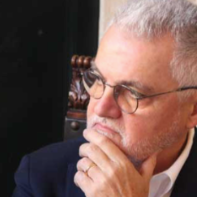
Stefano Arduini is full professor of Linguistics and dean of the Department of Arts, Music and Performing Arts at the University of Rome Link Campus. He has taught General Linguistics at the University of Urbino, at the University of International Studies of Rome, at the University of Modena and, in Spain, Comparative Literature at the University of Alicante and at the Universidad Autónoma of Madrid. He is president of the Unicampus San Pellegrino Foundation. Since 2001 he has been a member of the Nida Institute for Biblical Scholarship in Philadelphia. In 2005 he was appointed honorary life professor of the Universidad Nacional San Marcos in Lima (Peru). He is one of the founders of Translation. A Transdisciplnary Journal. Among his publications: Prolegomenos a una teoría generál de las figuras, Murcia, Universidad de Murcia 2000; Metaphors, Rome, Edizioni di Storia e Letteratura 2007; Paradoxes, Rome, Edizioni di Storia e Letteratura 2011; Con gli occhi dell’altro.Tradurre, Milan, Jaca Book 2020 (Russian edition 2021, English and Spanish editions 2022); Translations in search of an original. The Bible and his translations, Milan, Jaca Book 2021. Translator of Juan de la Crux, he began with Qoheleth, the translation of the Five Megillot (Qoheleth, Ruth, Canticle of Songs, Lamentations, Esther).
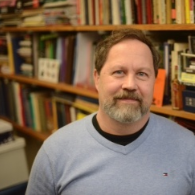
Brian James Baer is Professor of Russian and Translation Studies at Kent State University and Leading Research Fellow at the National Research University Higher School of Economics in Moscow. He is founding editor of the journal Translation and Interpreting Studies and co-editor of the Bloomsbury book series Literatures, Cultures, Translation. His publications include the monographs Other Russias: Homosexuality and the Crisis of Post-Soviet Identity, Translation and the Making of Modern Russian Literature and Queer Theory and Translation Studies: Languages, Politics, Desire, as well as the collected volumes Beyond the Ivory Tower: Re-thinking Translation Pedagogy, with Geoffrey Koby, Researching Translation and Interpreting, with Claudia Angelelli, Translation in Russian Contexts, with Susanna Witt, and Queering Translation, Translating the Queer, with Klaus Kaindl. His most recent translations include Culture, Memory and History: Essays in Cultural Semiotics, by Juri Lotman, Introduction to Translation Theory, by Andrei Fedorov, and the novel Red Crosses by Belorussian writer Sasha Filipenko. He is the current president of the American Translation and Interpreting Studies Association.
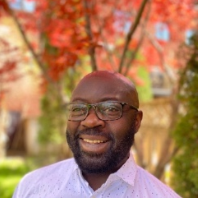
Paul F. Bandia is Professor of Translation Studies in the Department of French at Concordia University, Montreal, Canada. He is an Associate Fellow of the W.E.B. Du Bois Institute at the Hutchins Center, Harvard University. He is currently a member of the Executive Council of the International Association for Translation and Intercultural Studies (IATIS) and President of the Association for Translation Studies in Africa (ATSA). Professor Bandia’s interests lie in translation theory and history, postcolonial studies, and cultural theory. He is the author of Translation as Reparation: Writing and Translation in Postcolonial Africa (2008); editor of Orality and Translation (2017); special issue, Translation Studies, vol. 8, no. 2 (2015); Writing and Translating Francophone Discourses: Africa, the Caribbean, Diaspora (2014); co-editor of Charting the Future of Translation History (2006) and Agents of Translation (2009).
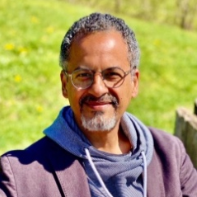
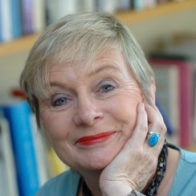

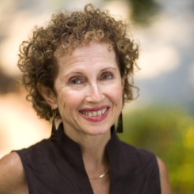


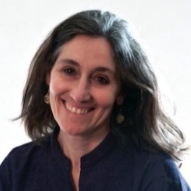
Christi A Merrill is professor of South Asian Literature and Postcolonial Theory jointly appointed in the Departments of Asian Languages and Cultures and Comparative Literature, where she has been a key part of efforts to establish an interdepartmental program in Critical Translation Studies at both the undergraduate and graduate levels. Her translations of the oral-based stories of Rajasthani writer Vijaydan Detha, Chouboli and Other Stories, supported by an NEA Literature Fellowship, were co-published by Katha (New Delhi) and Fordham University Press (New York) and won the 2012 A.K. Ramanujan Award for translation from the Association of Asian Studies. She spent the 2013-14 school year in India on an NEH/AIIS Senior Fellowship researching her current book project, Genres of Real Life: Mediating Stories of Injustice Across Languages and translating the life story of the dalit activist Kausalya Baisantry from Hindi. Her articles on human rights and literature in translation have appeared in South Asia, Testimony: Between History and Memory, Memory and Genocide: On what remains and the possibility of representation, Blackwell’s Companion to Translation Studies, boundary 2 and World Literature Today.

Babli Moitra Saraf, formerly Principal and Professor at the Indraprastha College for Women, University of Delhi, taught in the Department of English and in the Department of Multimedia and Mass Communication. She holds an MPhil in English and PhD in Sociology, and is fluent in several Indian and foreign languages. She is on the Advisory Board of the Journal for Translation Studies in Africa and Translation: A Transdisciplinary Journal, and a member on the Scientific Board of ‘In Other Wor(l)ds: Project Book Series on translations from Asia and North Africa.’ Her publications include among others, La Cattura and La Preda e altri Racconti (co-translated works of Mahasweta Devi with Maria Federica Oddera), Rajouri Remembered (translation of a partition memoir), Hey Diddle Diddle: Tun-Tun Tara-Tara ( Hindi adaptations/translations of popular English nursery rhymes), Selected Hindi Short Stories (ed. & translated into English), ‘Yaaron ke Yaar’ (trans. Into English from Hindi) in Krishna Sobti: A Counter Narrative, Performing Shakespeare in India: Exploring Indianness, Literatures and Cultures (co-edited) and ‘In Search of the Miracle Women: Returning the Gaze,’ in Translation and Interpreting Studies.
She has been a a scholar under the Indo–Italian Cultural Exchange Program, a Research Associate and Visiting Faculty at the Nida School of Translation Studies, and a Fellow of the Fulbright-Nehru International Education Administrator Seminar. She has received among others, the Distinguished Teacher Award of the University of Delhi, the 27th Dr S. Radhakrishnan Memorial National Award for Teachers, and the C.F. Andrews Distinguished Alumnus Award of the St Stephen’s College, Delhi, for ‘Lifelong Pursuit of Excellence.’
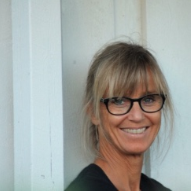
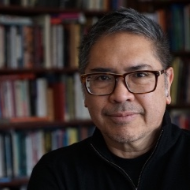
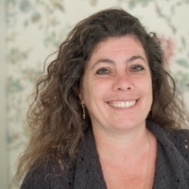
Carolyn Shread is Senior Lecturer in French at Mount Holyoke College and teaches translation at Smith College, USA. She translates scholarly and literary texts and has published numerous articles in the field of translation studies. Seven of her eleven published book translations are of work by contemporary French philosopher Catherine Malabou, including Pleasure Erased: The Clitoris Unthought (2022), recipient of a French Voices award. Shread’s articles address the intersection of translation and Malabou's signature concept, plasticity, as well as introducing Bracha Ettinger’s psychoanalytic concept of metramorphosis to rethink translational paradigms with a feminist lens. She has a longstanding interest in feminist translation and decolonial translation practices and has published several articles on translating Haitian author Marie Vieux-Chauvet’s Les Rapaces.
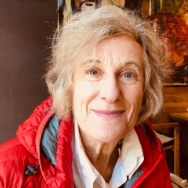
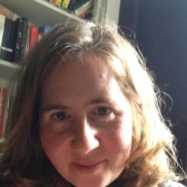
Michelle Woods is an Associate Professor of English at SUNY New Paltz. She is the author of Kafka Translated: How Translators Have Shaped Our Reading of Kafka (2014), Censoring Translation: Censorship, Theatre and the Politics of Translation (2012), and Translating Milan Kundera (2006). She is the editor of a book of essays on literature and translation, Authorizing Translation (2017), is co-editing a forthcoming book, Teaching Literature in Translation (2022), and writing a book about the female translators of Anna Karenina: Reading Anna. She is co-editor of the book series for Bloomsbury: Literatures, Cultures, Translation. Her translations have appeared in Granta and Words Without Borders.